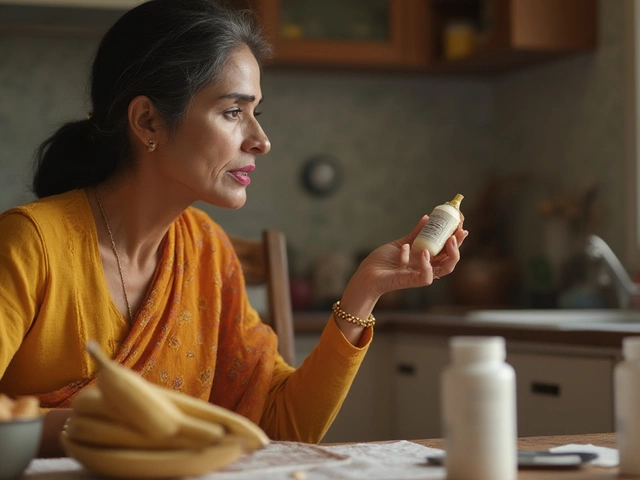Oral Health Basics: What You Need to Know Today
Keeping your mouth healthy isn’t just about a bright smile – it’s a key part of overall well‑being. In India, many people don’t realize that the medicines they take can shape the health of their teeth and gums. Below you’ll find straight‑forward advice on spotting drug‑related oral problems and simple habits that protect your mouth every day.
How Medicines Can Affect Your Mouth
Some common drugs have side effects that show up right in your mouth. For instance, many antibiotics can disrupt the natural balance of bacteria, leading to oral thrush or a metallic taste. Painkillers like ibuprofen may dry out saliva, and low saliva means more decay because saliva normally washes away food particles.
Diabetes pills such as metformin don’t directly hurt teeth, but they can change blood sugar levels, making gums more prone to infection. If you’re on blood thinners, even a small cut in the gum can bleed longer than usual. Always read the information leaflet – it often mentions “dry mouth” or “gum irritation” as possible reactions.
When you notice persistent bad breath, sore gums, or white patches after starting a new prescription, it’s worth a quick chat with your pharmacist or dentist. They can suggest a mouthwash, adjust the dosage, or switch you to a different drug that’s gentler on oral tissues.
Everyday Habits for a Healthy Smile
Even if you’re not taking any risky meds, daily habits decide whether your teeth stay strong. Brushing twice a day with fluoride toothpaste is non‑negotiable. Use a soft‑bristled brush and gentle circles – aggressive scrubbing can wear down enamel and hurt gums.
Flossing might feel like a chore, but it reaches the spaces your brush can’t. A quick, once‑daily floss session removes food stuck between teeth and cuts down plaque buildup. If floss is tricky, try interdental brushes or water flossers – they work just as well.
Watch what you sip. Sugary drinks, especially those that sit on teeth for a while, feed bacteria that produce acid. If you love tea or coffee, add a splash of milk and rinse with water afterwards. Alcohol can dry out mouth, so keep a bottle of water handy throughout the day.
Regular dental check‑ups are the safety net. In many Indian cities, government hospitals offer low‑cost cleanings, and private clinics often have seasonal discounts. Schedule a visit at least twice a year – early detection of cavities or gum disease saves teeth and money.
Lastly, don’t forget the link between diet and oral health. Crunchy veggies like carrots and apples naturally clean teeth while you chew. Calcium‑rich foods such as milk, paneer, and leafy greens reinforce enamel. A balanced diet supports both your body and your mouth.
Bottom line: be aware of how your medicines interact with your mouth, stick to simple daily routines, and keep up with professional dental care. Your smile will thank you, and you’ll avoid unexpected tooth pain that could disrupt work, study, or family time.

Dental Implants: What They Don't Tell You
Thinking about getting dental implants? There’s more to the story than the glossy brochures and dentist consultations reveal. This article digs into the practical realities—what recovery really feels like, the hidden costs, long-term maintenance, and those odd side effects nobody mentions. Get ready for honest tips, lesser-known facts, and practical advice to help you actually prepare for life with an implant. No sugarcoating—just what you actually need to know if you’re considering this solution.

Ozempic and Metformin: How Much Weight Can You Lose?
Feb, 17 2025



